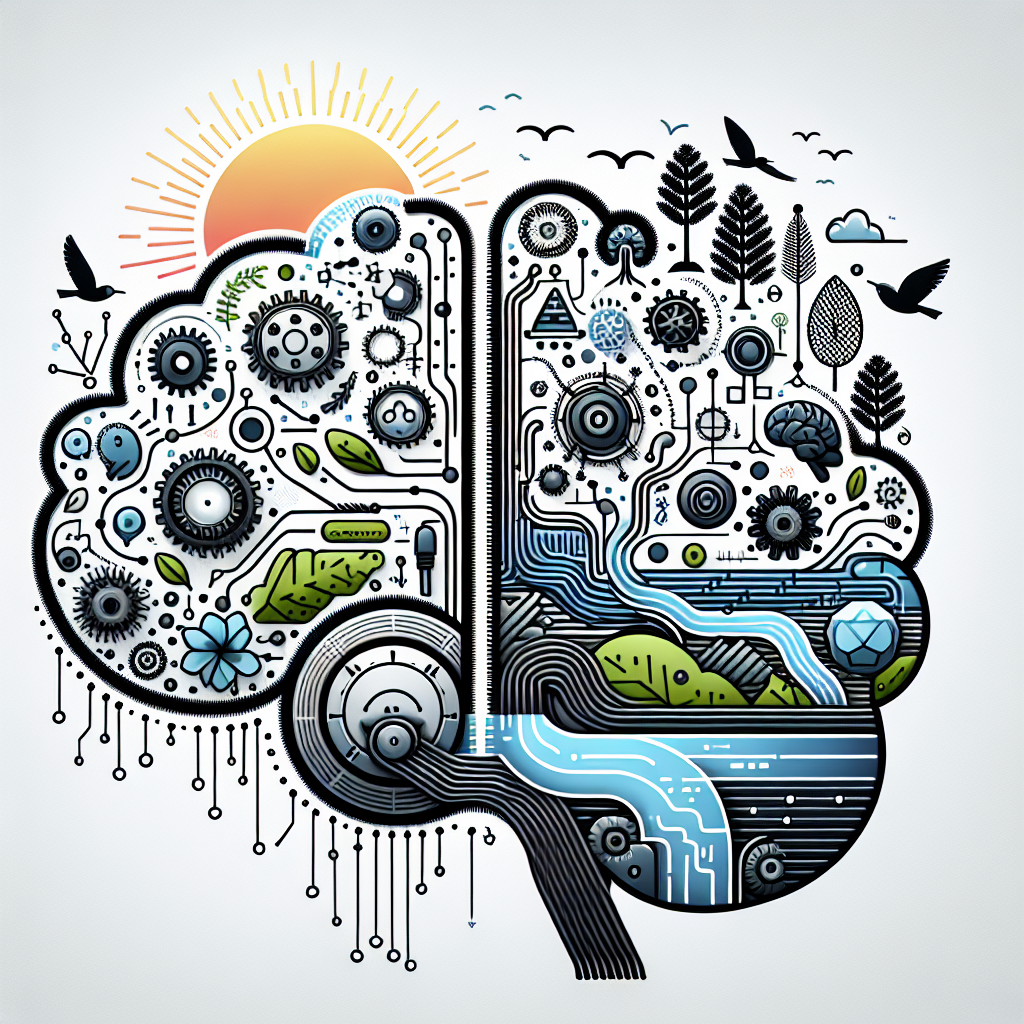Artificial Intelligence (AI) has been revolutionizing various industries and sectors, and one of the most significant advancements in this field is Natural Language Processing (NLP). NLP is a subfield of AI that focuses on the interaction between computers and humans using natural language. It involves the ability of computers to understand, interpret, and generate human language in a way that is valuable and meaningful.
The future of AI in NLP holds great promise and potential for a wide range of applications, from virtual assistants and chatbots to language translation and sentiment analysis. In this article, we will explore the current state of AI in NLP, the future trends and advancements, and the impact it will have on various industries.
Current State of AI in NLP
The current state of AI in NLP is already quite advanced, with many applications and technologies already in use. One of the most popular applications of AI in NLP is virtual assistants, such as Apple’s Siri, Amazon’s Alexa, and Google Assistant. These virtual assistants use NLP to understand and respond to human language, allowing users to interact with them in a natural and intuitive way.
Another common application of AI in NLP is chatbots, which are used by companies to provide customer support and interact with users on websites and social media platforms. Chatbots use NLP to understand and respond to user queries, providing a seamless and personalized experience.
AI in NLP is also used in language translation services, sentiment analysis, and text summarization. These applications rely on NLP algorithms to analyze and process large amounts of text data, extracting valuable insights and information.
Future Trends and Advancements
The future of AI in NLP is expected to bring about several exciting trends and advancements that will further enhance the capabilities of NLP technologies. Some of the key trends to watch out for include:
1. Improved Language Understanding: One of the main challenges in NLP is the ability of computers to understand and interpret human language accurately. Future advancements in AI will focus on improving language understanding capabilities, enabling computers to process and analyze text data more effectively.
2. Multilingual NLP: As the world becomes increasingly interconnected, the demand for multilingual NLP technologies is on the rise. Future advancements in AI will focus on developing NLP models that can understand and process multiple languages, enabling seamless language translation and communication.
3. Contextual Understanding: NLP technologies are currently limited in their ability to understand context and nuance in human language. Future advancements in AI will focus on improving contextual understanding capabilities, allowing computers to interpret and respond to text data in a more meaningful and accurate way.
4. Emotional Intelligence: Another area of focus for future advancements in AI in NLP is emotional intelligence. NLP technologies will be designed to understand and analyze emotions in human language, enabling more personalized and empathetic interactions with users.
Impact on Industries
The advancements in AI in NLP are expected to have a significant impact on various industries, transforming the way businesses interact with customers, analyze data, and make decisions. Some of the key industries that will be affected by AI in NLP include:
1. Customer Service: AI-powered chatbots and virtual assistants will revolutionize customer service by providing instant and personalized support to users. Businesses will be able to automate routine customer queries and provide round-the-clock assistance, improving customer satisfaction and loyalty.
2. Healthcare: AI in NLP will revolutionize the healthcare industry by enabling more accurate and efficient diagnosis, treatment, and patient care. NLP technologies will be used to analyze medical records, patient data, and research articles, providing valuable insights and recommendations to healthcare professionals.
3. Marketing and Advertising: AI in NLP will transform marketing and advertising by enabling businesses to analyze and understand consumer sentiment, preferences, and behavior. NLP technologies will be used to create personalized marketing campaigns, analyze social media data, and engage with customers in a more meaningful way.
4. Finance: AI in NLP will revolutionize the finance industry by enabling more accurate and efficient analysis of financial data, market trends, and customer behavior. NLP technologies will be used to automate financial reporting, analyze investment opportunities, and provide personalized financial advice to customers.
FAQs
Q: What are the main challenges in AI in NLP?
A: Some of the main challenges in AI in NLP include language understanding, contextual understanding, emotional intelligence, and multilingual capabilities.
Q: How can businesses leverage AI in NLP?
A: Businesses can leverage AI in NLP to improve customer service, analyze data, personalize marketing campaigns, and automate routine tasks.
Q: What are some of the key trends in AI in NLP?
A: Some of the key trends in AI in NLP include improved language understanding, multilingual capabilities, contextual understanding, and emotional intelligence.
Q: How will AI in NLP impact various industries?
A: AI in NLP will have a significant impact on industries such as customer service, healthcare, marketing and advertising, and finance, transforming the way businesses interact with customers, analyze data, and make decisions.
In conclusion, the future of AI in NLP holds great promise and potential for a wide range of applications and industries. As advancements in AI continue to evolve, we can expect to see more sophisticated NLP technologies that will revolutionize the way we communicate, interact, and make decisions. Businesses that embrace AI in NLP will be able to gain a competitive edge and drive innovation in their respective industries.

